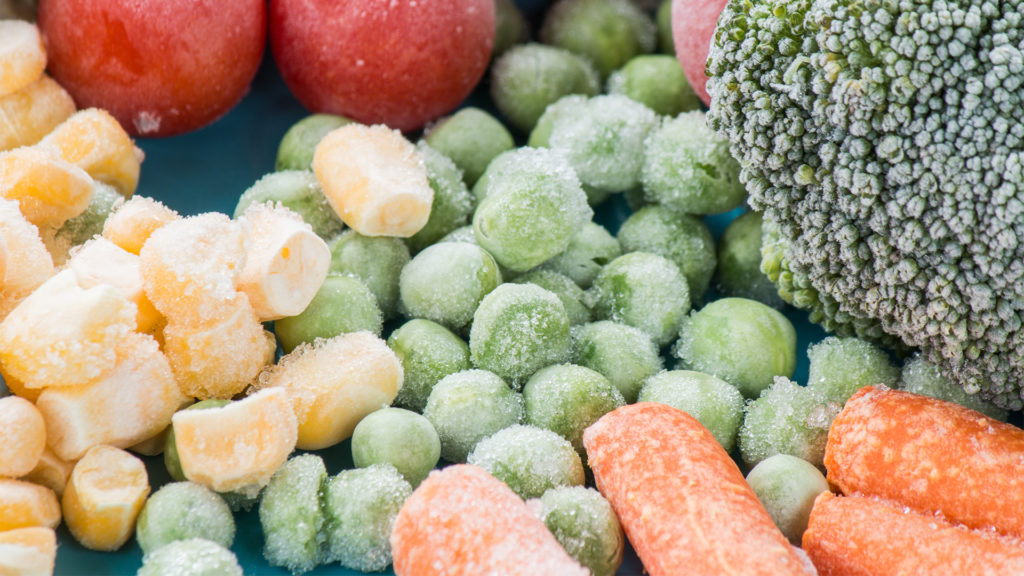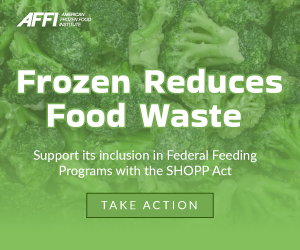AFFI relies on science-based research to inform its policy issues and educate its members. Key to AFFI’s scientific research efforts are assessing technical gap areas and identifying relevant collaboration with industry academia. The following studies were funded by the Frozen Food Foundation which is a not-for-profit organization affiliated with AFFI that was founded to support research and education on the nutritional, safety and societal attributes of frozen foods.

Quantitative risk assessment model to investigate the public health impact of varying Listeria monocytogenes allowable levels in different food commodities: A retrospective analysis
An analysis supported by the Frozen Food Foundation investigated the public health impact of Lm in different foods and concluded that an allowable tolerance level for Lm will lead to a decrease in the number of listeriosis cases. The findings were published in Volume 338 in the International Journal of Food Microbiology.

An Assessment of Listeriosis Risk Associated with a Contaminated Production Lot of Frozen Vegetables Consumed under Alternative Consumer Handling Scenarios. 2019. Claire Zoellner, Martin Wiedmann, and Renata Ivanek. Journal of Food Protection. Vol. 82
New research funded by the Frozen Food Foundation developed a risk assessment tool to evaluate the risk of Listeria monocytogenes (Lm) in specific batches of frozen foods. The findings are published in the December 2019 issue of Journal of Food Protection.

EnABLe: An agent-based model to understand Listeria dynamics in food processing facilities. 2019. Claire Zoellner, Rachel Jennings, Martin Wiedmann and Renata Ivanek. Scientific Reports, Vol. 9
This study focused on developing and testing a computer model that has the potential to pinpoint locations in a food manufacturing facility where Listeria monocytogenes might be found.

Design Elements of Listeria Environmental Monitoring Programs in Food Processing Facilities: A Scoping Review of Research and Guidance Materials. 2018. Claire Zoellner, Kristina Ceres, Kate Ghezzi‐Kopel, Martin Wiedmann and Renata Ivanek. Comprehensive Reviewsin Food Science and Food Safety Vol.17, p. 1156
A scoping review was conducted to collate and synthesize available research and guidance materials on Listeria EM in food processing facilities. An exhaustive search was performed to identify all available research, industry and regulatory documents, and search results were screened for relevance based on eligibility criteria. The comprehensive collection of documents identified and synthesized in this review aids continued efforts to minimize the risk of Lm contaminated foods.

Thermal Inactivation of Listeria monocytogenes and Salmonella during Water and Steam Blanching of Vegetables. 2017. ERDOGAN CEYLAN, WENDY MCMAHONAND and DONNA M. GARREN. Journal of Food Protection, Vol. 80, Pages 1550–1556.
Thermal inactivation of Listeria monocytogenes and Salmonella was evaluated on peas, spinach, broccoli, potatoes, and carrots that were treated with hot water and steam. Results suggest that hot water and steam blanching practices commonly used by the frozen vegetable industry will achieve the desired 5-log lethality of L. monocytogenes and Salmonella and will enhance microbiological safety prior to freezing.

Quantitative risk assessment model to investigate the public health impact of varying Listeria monocytogenes allowable levels in different food commodities: A retrospective analysis
An analysis supported by the Frozen Food Foundation investigated the public health impact of Lm in different foods and concluded that an allowable tolerance level for Lm will lead to a decrease in the number of listeriosis cases. The findings were published in Volume 338 in the International Journal of Food Microbiology.



